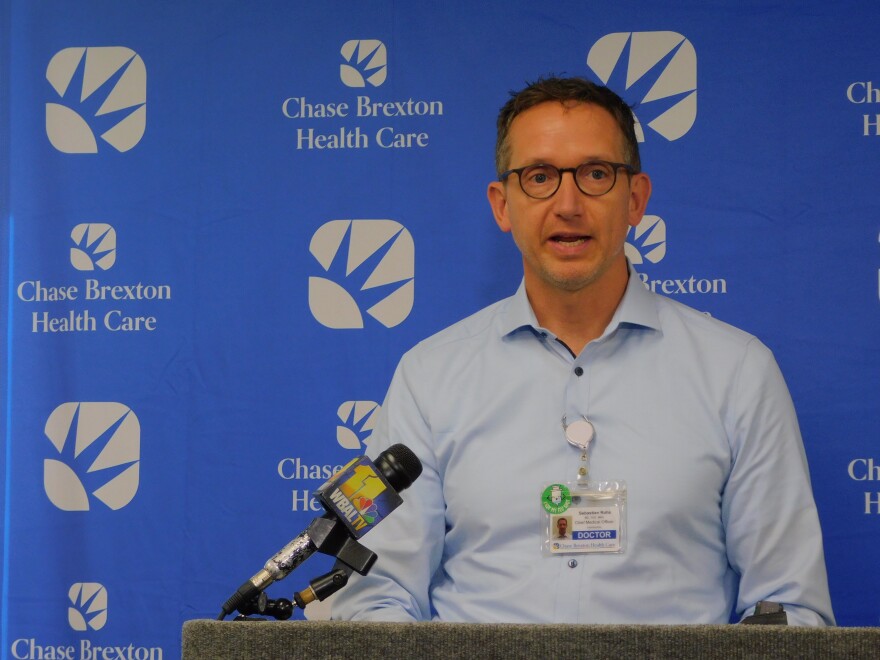Maryland leaders continue to sound the alarm on Affordable Care Act (ACA) health insurance subsidies expiring at the end of this year and how their expiration will impact Maryland patients and health providers.
The subsidies, known as enhanced premium tax credits, lower the cost of health insurance for those who purchase plans through ACA marketplaces. In Maryland, this marketplace is known as the Maryland Health Benefit Exchange.
Renewing the health subsidies remains the major bargaining chip for Senate Democrats to approve a federal budget measure and reopen the government, which has remained in a shutdown for over two weeks.
Maryland Comptroller Brooke Lierman was among several state leaders to speak at Chase Brexton Health Care’s Glen Burnie Center Thursday, warning that healthcare providers like Chase Brexton are likely to suffer the brunt of the blow if the subsidies are not renewed.
“Without action by the Republicans to vote to extend these subsidies, health insurance premiums for Marylanders will skyrocket to unaffordable levels. We're talking about increases of hundreds, even thousands of dollars per year, per working family,” Lierman said. “People will just drop their coverage. They'll skip doctor visits, they'll avoid preventive care, and then when they finally do seek treatment, it will be in emergency rooms at far greater cost to everyone.”
As a Federally Qualified Health Center (FQHC), Chase Brexton Health Care receives federal funding to care for underserved populations, regardless of their ability to pay.
The Glen Burnie location alone reports 45% of their patients are uninsured, who are offered a sliding fee scale to make treatment more affordable. 32% of their patients are on Medicaid.
Chase Brexton’s Chief Medical Officer Dr. Sebastian Ruhs explains about 400,000 Marylanders receive care at FQHCs. That number is only growing and straining Chase Brexton’s system, which is planning an expansion at the Glen Burnie Center to accommodate more patients.
“FQHCs, together with the [Veterans Affairs] system, are the largest provider of healthcare in the United States. We serve millions of Americans all together, and we formed a very important safety network for our society. We provide high quality care for everyone, independent from what the insurance status is, many people who otherwise would not have access to care in Maryland,” Ruhs said.
Congresswoman Sarah Elfreth says even those who don’t benefit directly from the ACA subsidies should be on alert for rising costs in premiums.
“If you are on the individual market, you are set to experience a 17% increase in your health insurance rate, and that's not even the employer-based health insurance system. I can't tell you who, but a major employer in my district is preparing for a 19% increase,” Elfreth said.
Not only do officials worry about an influx of patients becoming uninsured and turning to FQHCs — or deferring care altogether — due to a lack of coverage affordability, but they also worry about Medicaid patients’ access to care.
Medicaid funding and program cuts under Download Trump’s “One Big Beautiful Bill Act” are set to begin in January 2027, and the Congressional Budget Office estimates roughly 16 million people nationwide could lose their health insurance coverage by 2034.
With the ACA subsidies set to expire, Medicaid cuts looming and new tariffs on pharmaceutical drugs, Elfreth says these changes will all “snowball into what Chase Brexton is going to have to take on.”
A Republican budget measure that does not renew federal funding for the ACA subsidies failed for the 10th time Thursday, maintaining the government shutdown.
Chase Brexton says it has not faced any immediate financial impacts due to the shutdown but continues to monitor the situation at the federal level.









